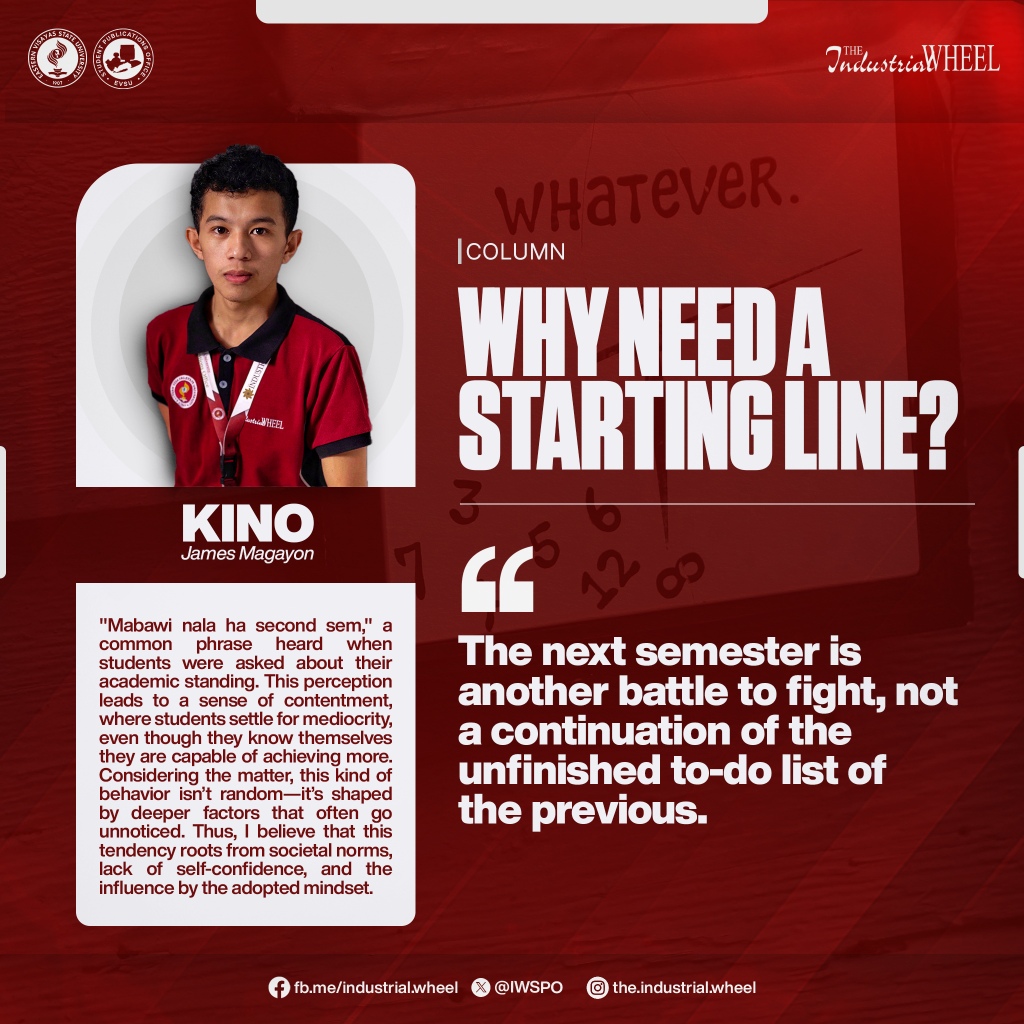
“Mabawi nala ha second sem,” a common phrase heard when students were asked about their academic standing. This perception leads to a sense of contentment, where students settle for mediocrity, even though they know themselves they are capable of achieving more. Considering the matter, this kind of behavior isn’t random–it’s shaped by deeper factors that often go unnoticed. Thus, I believe that this tendency roots from societal norms, lack of self-confidence, and the influence by the adopted mindset.
Isn’t it ironic how 2025 began on just a random Wednesday? If we think about it, it seems like an ordinary day. Technically, it was just another day, yet we labeled it as a fresh start. This got me thinking: Why do we always wait for a “special day” or a perfect timing to make a change? The truth is, we don’t need a New Year’s Eve countdown or a next semester to begin anew. Whatever kind of day could be a good start. Everyday holds the same timeframe, each day is a perfect timing.
Starting a goal sooner gives us ample time to prepare, strategize, and assess our strengths, ensuring a positive outcome despite the ambiguity of the future. But too often, students hold on the belief “mabawi sunod.” While this notion may be comforting and seem like a harmless attitude, still, it can limit our growth and discourage us from reaching our full potential. It also overlooks the harsh reality that even tomorrow remains uncertain. The next semester is another battle to fight, not a continuation of the unfinished to-do list of the previous.
This may be tough, but this is a hard truth: If we don’t make the most of our efforts in a current semester, who can say we’ll even reach that “next”?
On the other hand, confidence plays a crucial role in starting anything we want to achieve. While it may come easily for some, it’s not the case for everyone. Some students get easily discouraged by the thought of riding an unknown roller coaster, but we can’t take that against them. We all have different ways to gain strengths after all. Still, it is important to know how to start, and that progress runs even in a small steps.
While setting goals can be an instrument to organize our plans that should be accomplished, its effectiveness somehow depends on the mindset we adopt–growth or fixed. Growth-mindset learners understand that setbacks are just simply part of the journey. They don’t get demotivated by a low-score exam. Instead of wasting time waiting for something, they take immediate action and use these challenges to spot for their limitations and look for ways to improve.
In contrast, learners with a fixed mindset fear failure but hold back from trying. They believe that after a failure, their abilities are set in stone, and wait for a “better time” to try again–often leading to procrastination, rather than realizing that growth happens when embracing the present.
I’ll admit, I’ve fallen into this kind of thinking. I clearly remember making a list of goals I intended to work on during the Christmas vacation. I even told myself I would work on it after the holidays, knowing I have an almost a month before the classes starts. To tell you honestly how many I have accomplished–none. And this made me realized that even the simplest task remained untouched when waiting for a certain moment to start on.
Frankly speaking, the idea of waiting for a starting calendar to begin only hinders the progress. It just leaves us feeling overwhelmed by the tasks at hand but doing nothing to accomplish them.
We may all have our own ways of completing our goals, but here’s one thing for sure: it’s never wrong to start soonest. The sooner we begin, the sooner we can assess our progress and allows us to make necessary adjustments along the way. It’s normal to start messy, to miss opportunities, or even to start over. What truly matters is taking action and to know that even on a random Thursday afternoon, there is always a chance to begin.
Article by: James Magayon
